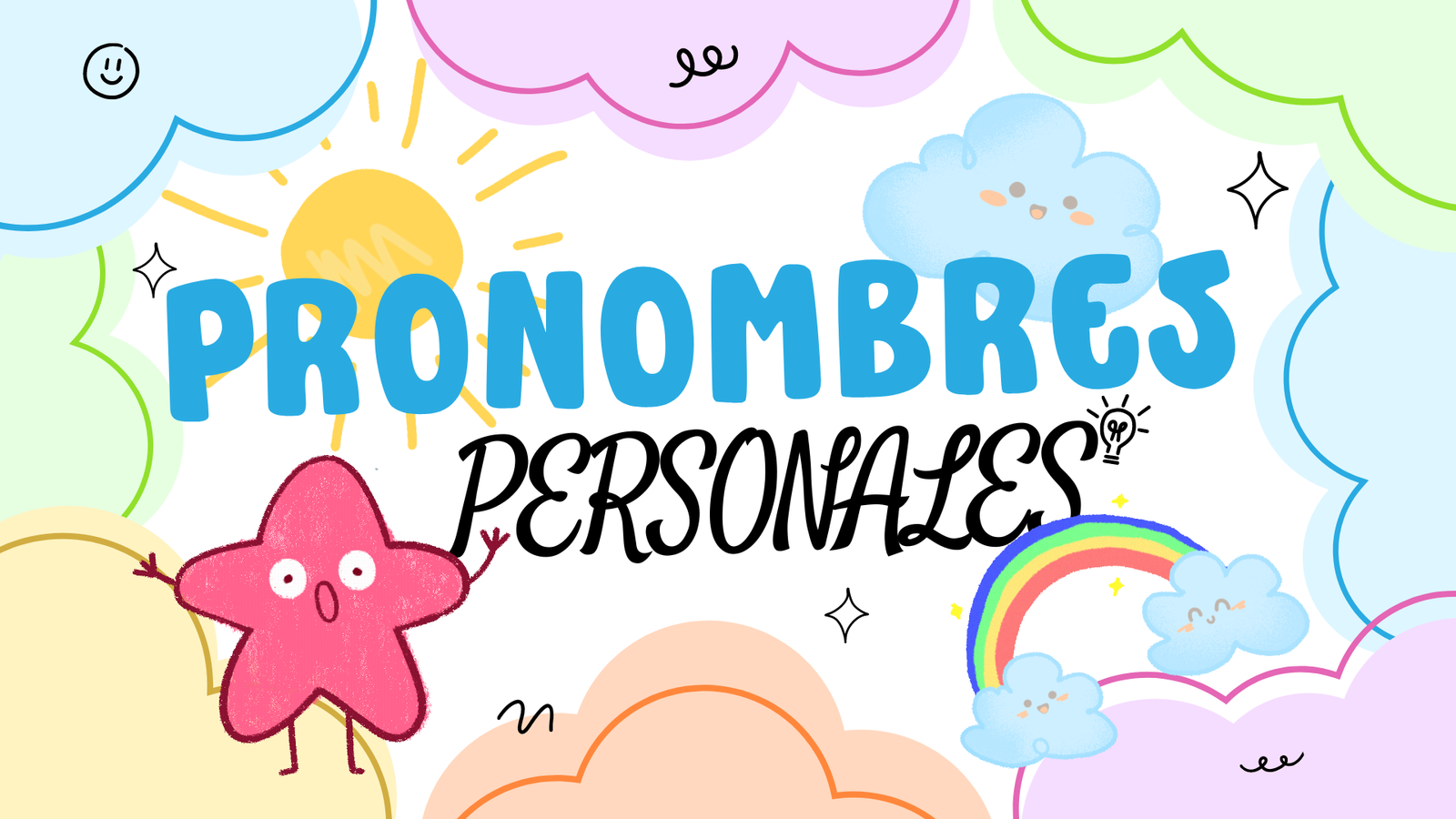
Personal pronouns in Spanish are words that replace nouns and refer to people or things. They’re similar to personal pronouns in English, like “I,” “you,” “he,” “she,” “we,” and “they.” Here’s a simple explanation with examples:
Subject Pronouns
- Yo – “I”
- Example: Yo soy estudiante. (I am a student.)
- Tú – “You” (informal)
- Example: Tú eres mi amigo. (You are my friend.)
- Él / Ella / Usted – “He” / “She” / “You” (formal)
- Él – Example: Él es profesor. (He is a teacher.)
- Ella – Example: Ella es médica. (She is a doctor.)
- Usted – Example: ¿Cómo está usted? (How are you? – formal)
- Nosotros / Nosotras – “We” (male/mixed group or female group)
- Example: Nosotros vamos al cine. (We are going to the cinema.)
- Example: Nosotras vamos a la playa. (We are going to the beach.)
- Vosotros / Vosotras – “You all” (informal, mainly used in Spain; male/mixed or female group)
- Example: Vosotros sois divertidos. (You all are fun.)
- Example: Vosotras sois inteligentes. (You all are smart.)
- Ellos / Ellas / Ustedes – “They” (male/mixed group or female group) / “You all” (formal)
- Ellos – Example: Ellos juegan fútbol. (They play soccer.)
- Ellas – Example: Ellas cantan bien. (They sing well.)
- Ustedes – Example: ¿Ustedes vienen a la fiesta? (Are you all coming to the party? – formal)
Key Points
- “Tú” vs. “Usted”: Use “tú” for friends, family, and people of the same age or younger. Use “usted” for strangers, elders, or in formal situations.
- “Vosotros” and “Vosotras”: These are primarily used in Spain. In Latin America, “ustedes” is used for all groups.
Let´s practice
